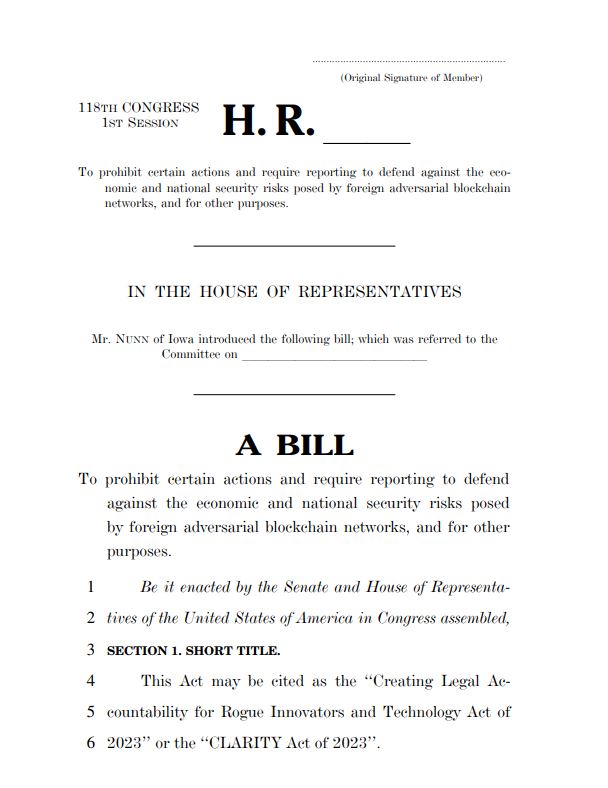
The CLARITY Act
U.S. Representatives Zach Nunn and Abigail Spanberger have introduced the Creating Legal Accountability for Rogue Innovators and Technology (CLARITY) Act. The legislation aims to ban federal government officials from conducting business with Chinese blockchain companies.
Prohibiting Transactions
The Act would explicitly forbid government employees from using the networks of Chinese blockchain or cryptocurrency trading platforms. Additionally, it would prohibit U.S. government officials from engaging in transactions with iFinex, the parent company of USDT issuer Tether.
The CLARITY Act would also prohibit officials from conducting transactions with The Spartan Network, The Conflux Network, and Red Date Technology. The lawmakers stated that this legislation would prevent foreign adversaries from accessing critical national security intelligence and Americans' private information.
Tether's Chinese Connections
Tether, the issuer of the USDT stablecoin, was recently reported to have exposure to Chinese securities and other Chinese firms. Documents released by New York's Attorney General revealed that Tether held securities from state-owned Chinese firms such as the Industrial and Commercial Bank of China, China Construction Bank, and Agricultural Bank of China.

Tether's reserves also included short-term loans to Chinese firms and a significant loan to the cryptocurrency platform Celsius Network. The company had previously denied any involvement with the debt of China's Evergrande Group but had not disclosed its holdings of other Chinese securities.
SEC Monitoring
The U.S. Securities and Exchange Commission (SEC) is closely monitoring Tether's operations. A report in September suggested that the company had secretly started offering USDT stablecoin loans to customers, despite pledging to stop providing secured loans.
Washington's Concerns
The introduction of the CLARITY Act reflects growing concerns within Washington about Chinese connections in the cryptocurrency sector.






